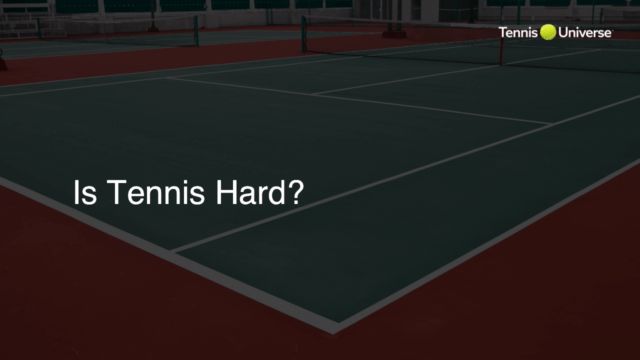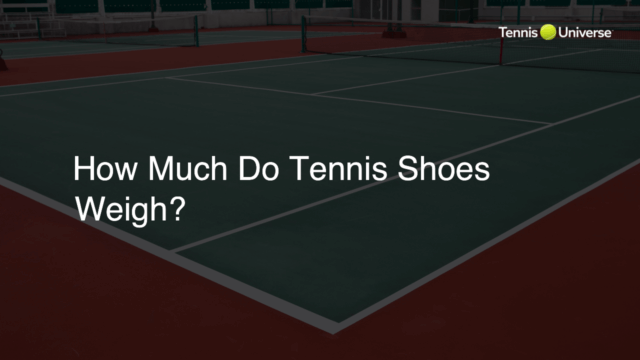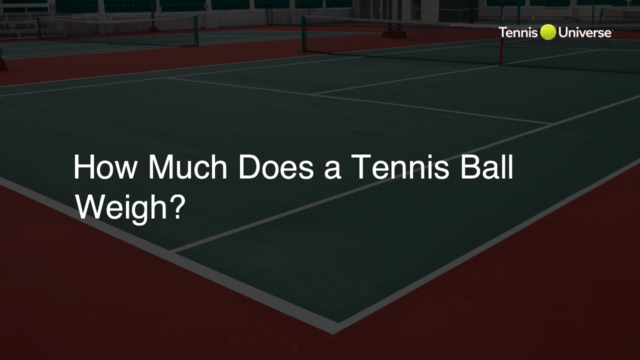In tennis, “retired” refers to when a player decides to stop participating in a match due to injury, illness, or other personal reasons. This results in the opposing player being declared the winner by default, because the retiring player can no longer continue the match.
Definition of Retired in Tennis
In the world of tennis, the term ‘retired’ carries a very specific meaning. Retired refers to a player’s decision to withdraw from a match due to injury, illness, or other personal reasons. This results in the retiring player’s opponent being declared the winner by default as the match cannot be continued.
Reasons for Retirement in a Tennis Match
There are various reasons that may lead to a player’s retirement during a match, which include:
Injuries
Injuries are the most common cause of retirement in tennis. Players may suffer from muscle strains, joint injuries, or other painful conditions, making it impossible to carry on with the match. As the wellbeing of the player is paramount, they may opt to retire instead of risking further harm.
Illness or Health Conditions
Sometimes a player may experience an unforeseen illness that severely affects their performance. High temperatures, loss of energy, or even food poisoning can make it difficult for the player to compete at their best, leading to retirement.
Personal Reasons
Players may also choose to retire due to personal reasons, such as emotional distress or family emergencies. In such cases, the player’s mental well-being takes precedence, making it essential for them to discontinue the match.
How Retirement Affects Match Results
When a player retires, it means that the opposing player is declared the winner by default. Consequently, this allows the victorious player to advance to the next round of the tournament and increases their overall ranking points as well.
Retirement vs. Forfeit
It is vital to differentiate between retirement and forfeit in tennis. Retirement occurs during the match and implies that the player was physically present but couldn’t continue. On the other hand, forfeit signifies that the player is unable to attend the event due to injury, illness, or other reasons, leading to default victory for the opponent without even stepping on the court.
The Role of a Tennis Racket in Player Retirement
Although a tennis racket may not directly impact player retirement, using improper equipment can still lead to discomfort or potential injuries. Choosing the right tennis racket that suits a player’s style and physical capabilities can help minimize the risk of injuries and, subsequently, the likelihood of retirement from a match.
Preventing Retirement with Proper Preparation
While retirement in tennis matches cannot be entirely avoided, there are steps players can take to reduce the likelihood of withdrawing due to injury or illness. Proper preparation and tennis tips can significantly decrease the chances of match retirement.
Physical Conditioning
One of the best ways to prevent injuries is through regular strength and flexibility training. By conditioning their bodies for the rigorous demands of tennis, players can minimize wear and tear on their muscles and joints, lowering the risk of injury during a match.
Effective Warm-up and Cool-down Routines
Warming up before a match prepares the body for more vigorous activity by increasing blood flow to the muscles. A proper cool-down after the match helps in muscle recovery and prevents cramping. Skipping these routines puts players at greater risk of incurring injuries and retiring from the match.
Proper Tennis Tips and Techniques
Improving one’s skills and technique through tennis tips and expert guidance can lessen the strain on the body. For example, having a solid serve technique or a balanced stroke can distribute the physical stress more evenly, reducing the risk of injury and retirement.
Nutrition and Hydration
Maintaining a balanced diet and staying hydrated play an essential role in preventing fatigue and muscle cramps, decreasing the likelihood of retiring during a match. Consuming the right nutrients and fluids can help enhance a player’s endurance and overall performance on the court.
Know When to Seek Medical Advice
Listening to your body is crucial in determining if continuing a match is safe or not. If players experience pain, discomfort, or illness, they must evaluate whether or not they’re able to carry on. Seeking professional medical advice when required can assist in making informed decisions, protecting the player’s health and career in the long run.
FAQ Section: Retirement in Tennis
Readers may have additional questions related to tennis retirement. The following frequently asked questions aim to address any remaining concerns and provide further clarity on the subject.
What happens to the match score when a player retires?
When a player retires, the match score is recorded as it stands at the moment of retirement. However, the opponent is declared the winner by default, regardless of the score when the retiring player decides to withdraw.
Can a match be suspended instead of declaring a retirement?
A match can only be suspended due to external factors like bad weather, poor light conditions, or court issues. Player-related factors like injury or illness do not qualify for suspending a match and would lead to retirement instead.
Is there a difference between retiring from a singles match and a doubles match?
No, the concept of retiring is the same for both singles and doubles matches. If a player in a doubles team decides to retire due to injury, illness, or personal reasons, the opposing team is awarded the win by default.
Can a player resume a retired match at a later time?
No, once a player has retired from a match, it is considered final, and the opponent is declared the winner. The retired match cannot be resumed at a later time.
Do retired matches impact a player’s overall tournament record and ranking?
Yes, retiring from a match is counted as a loss in a player’s overall tournament record and impacts their ranking points. Even though retirement results from unforeseen circumstances, it still affects the player’s performance statistics in professional tennis.











